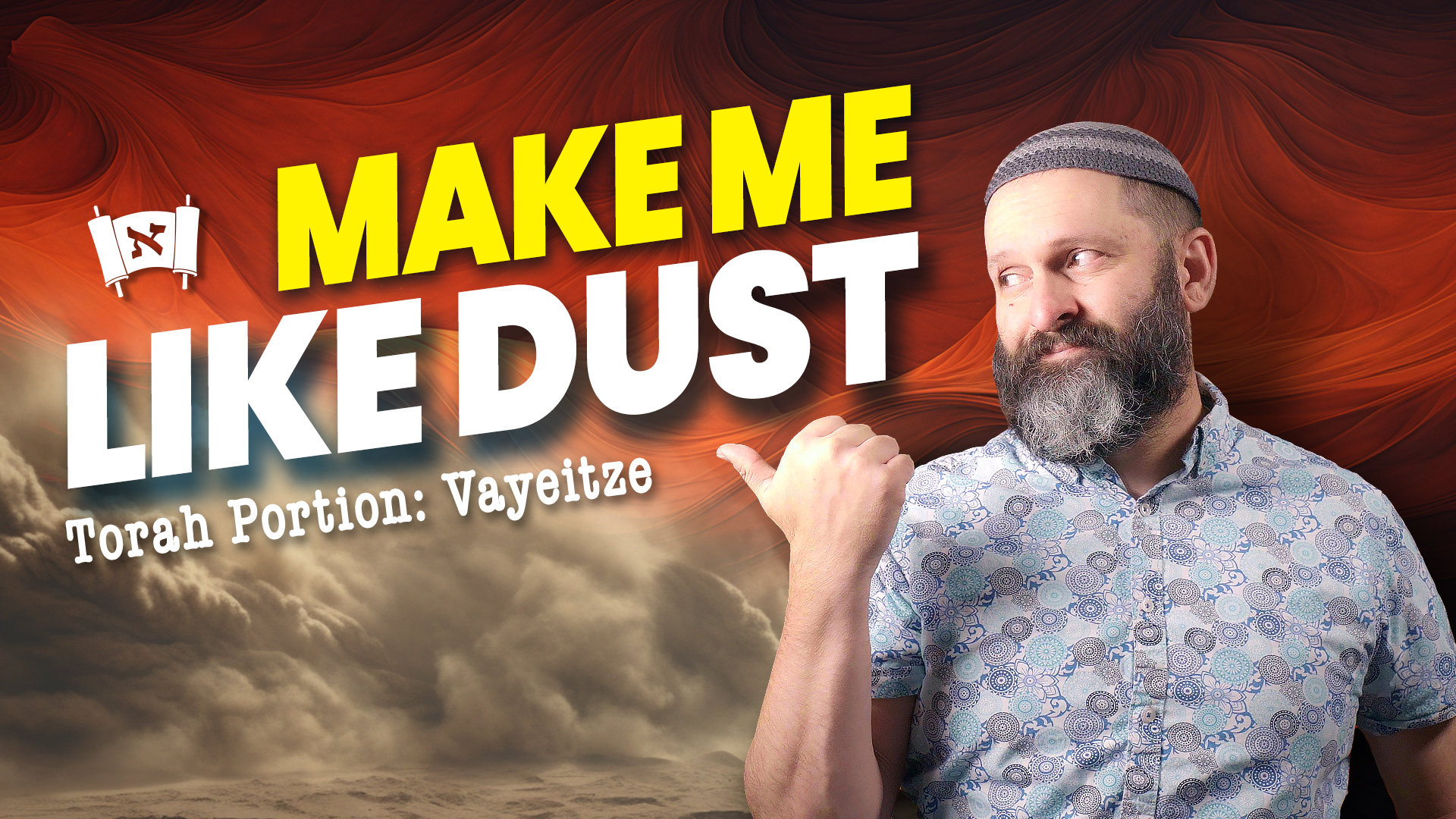Make Me Like Dust
Series:

Parashat Vayeitze (Genesis 28:10-32:2)
Our parashah begins with Jacob leaving Beersheba and setting out toward Paddan-aram in order to search for a bride from among Abraham’s family. On the way, however, he spends the night in Luz, a city he ends up calling “Bethel,” which means, “House of God.” During the night Hashem appears to Jacob in a dream. He sees angels ascending and descending on a ladder extending into heaven. In this dream the LORD appears to Jacob and makes him a promise. As part of that promise He tells Jacob:
Your offspring shall be like the dust of the earth, and you shall spread abroad to the west and to the east and to the north and to the south, and in you and your offspring shall all the families of the earth be blessed. (Genesis 28:14)
The first phrase of this passage says, “Your offspring shall be like the dust of the earth.” Without the additional context it doesn’t sound too appealing. Who wants to be like dust? Isn’t dust the lowest, most debased thing on earth? Isn’t our return to dust an inevitable future for all living creatures? Echoing Genesis 3:19, Ecclesiastes 3:20 tells us, “All go to one place. All are from the dust, and to dust all return.” Within the context, however, we find that being like dust is truly a blessing, since dust symbolizes an incalculable multiplication of Jacob’s offspring.
In the original Hebrew, the phrase, “Your offspring shall be like the dust of the earth, and you shall spread abroad” ends with the word, ufaratzta, which means, “and you shall spread out.” In the late 1950’s the Lubavitcher Rebbe, Rabbi Menachem Mendel Schneerson, of righteous memory, used this passage as the foundation of his Ufaratzta campaign. His goal was to spread Jewish emissaries into the most remote corners of the world in order to search out Jews and bring them closer to the Torah and to the commandments. He desired to see the the light of the Torah spread throughout the earth by those who were promised to cover the earth.
But why did Hashem liken Jacob’s descendants to dust? There is a clue the daily prayers that will help us decipher this. At the end of the Amidah, the central prayer of each of the daily times of prayer, we recite a petition attributed to Mar the son of Rabina. We say, “To those who curse me let my soul be silent, and may my soul be like dust to everyone.” For many people this is troubling. Why would anyone want to be silent to the curses of others to the point of being like dust? Are we supposed to be floor mats for other people to walk all over?
This corresponds to Yeshua’s teaching to his disciples. He said, “Love your enemies, do good to those who hate you, bless those who curse you, pray for those who abuse you. To one who strikes you on the cheek, offer the other also, and from one who takes away your cloak do not withhold your tunic either” (Luke 6:27–29). The Apostle Paul emphasizes this principle when he says, “Beloved, never avenge yourselves, but leave it to the wrath of God, for it is written, ‘Vengeance is mine, I will repay, says the Lord’ ” (Romans 12:19). We must always remember that Hashem is our ultimate vindicator, rather than our own selves.
Dust is everywhere. No matter how hard we work to eliminate it, it creeps in and covers everything. It’s annoying. Yet, we know that dust ultimately claims victory over all of man’s monuments to his achievements. Archaeologists are still working to discover the traces of entire civilizations that the dust of the earth has swallowed over the centuries. Just as the dust of the earth slowly conquers all and covers all, so too will the descendants of Jacob. There have been many people throughout history who have attempted to exterminate the family of Jacob, but none have succeeded. Haman, Antiochus, Hitler, and many others are all gone. But yet the promise of Hashem remains and the Jewish people are like the dust of the earth, scattered everywhere the eye can see.








